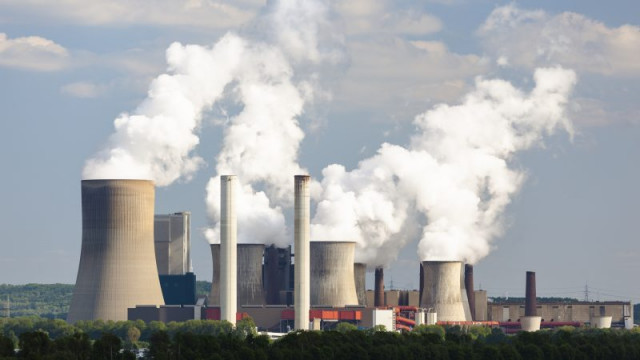 Ukraine reports 5,276 new COVID-19 cases
Ukraine reports 5,276 new COVID-19 cases
 Zelensky: Every third Ukrainian considers road construction one of greatest achievements of 2021
Zelensky: Every third Ukrainian considers road construction one of greatest achievements of 2021
 Ukraine ready to implement Minsk agreements, but Russia's desire needed - Yermak
Ukraine ready to implement Minsk agreements, but Russia's desire needed - Yermak
 Michel: EU unanimously agree to roll over economic sanctions against Russia
Michel: EU unanimously agree to roll over economic sanctions against Russia
 Actions by Ukraine's partners will help prevent worst-case scenario - Zelensky
Actions by Ukraine's partners will help prevent worst-case scenario - Zelensky
 COVID-19 in Ukraine: Health officials confirm 8,899 daily cases as of Dec 17
COVID-19 in Ukraine: Health officials confirm 8,899 daily cases as of Dec 17
 Macron tells Zelensky he declared support for Ukraine in call with Putin
Macron tells Zelensky he declared support for Ukraine in call with Putin
 Zelensky, Scholz discuss gas transit through Ukraine after 2024
Zelensky, Scholz discuss gas transit through Ukraine after 2024
 Ukraine ready for any format of talks with Russia - Zelensky
Ukraine ready for any format of talks with Russia - Zelensky
 Ukraine’s only journalist in Russia facing extremism charges - lawyer
Ukraine’s only journalist in Russia facing extremism charges - lawyer
 PM Shmyhal: First two applications for investment projects worth $96 million filed
PM Shmyhal: First two applications for investment projects worth $96 million filed
 Zelensky, PM of Italy discuss security situation around Ukraine
Zelensky, PM of Italy discuss security situation around Ukraine
 President signs off State Budget 2022
President signs off State Budget 2022
 London considering all options for responding to Russia's aggression against Ukraine
London considering all options for responding to Russia's aggression against Ukraine
 Putin, Biden to hold another round of talks
Putin, Biden to hold another round of talks
 Some 260,000 Ukrainians “victims of human trafficking” over 30 years - prosecutor general
Some 260,000 Ukrainians “victims of human trafficking” over 30 years - prosecutor general
 Ukraine plans to create center to protect energy infrastructure from cyber attacks
Ukraine plans to create center to protect energy infrastructure from cyber attacks
 No clear idea so far when Normandy Four top diplomats set to meet - German Ambassador
No clear idea so far when Normandy Four top diplomats set to meet - German Ambassador
 Ukraine receives EUR 600M in macro-financial assistance from EU
Ukraine receives EUR 600M in macro-financial assistance from EU
 Zelensky holds phone conversation with PM of Israel
Zelensky holds phone conversation with PM of Israel
 Ukraine sets new daily COVID vaccination record
Ukraine sets new daily COVID vaccination record
 MFA: European Union has not yet removed Ukraine from list of safe countries
MFA: European Union has not yet removed Ukraine from list of safe countries
 Kyiv records 1,023 new COVID-19 cases, 29 deaths
Kyiv records 1,023 new COVID-19 cases, 29 deaths
 G7 ambassadors welcome adoption of law on NABU status
G7 ambassadors welcome adoption of law on NABU status
 Ukraine can increase Covid vaccination rates to 1.5M a week – Liashko
Ukraine can increase Covid vaccination rates to 1.5M a week – Liashko
The federal economic ministry has followed the German coal commission’s recommendation by preparing a draft bill to phase-out coal power generation. However, things are going too slowly, according to the Greens.
On Wednesday, the German Ministry of Economics and Technology published its legislative strategy to phase-out coal.
Accordingly, a draft law on hard coal is to be drafted by autumn, triggering negotiations with lignite-fired power station operators as to which plants would be shut down and when.
By the end of the year, a coal phase-out law should, therefore, be adopted.
While drafting, the ministry intends to follow recommendations presented in January by Germany’s so-called coal commission.
The compromise stipulates that by 2038, Germany will have abandoned coal entirely.
In Germany, coal power still accounts for about a third of electricity production, amounting to a total of 41 gigawatts.
As a first step, the German cabinet adopted the guiding principles for a “Structural Strengthening Act for Coal Regions” on 22 May.
By 2038, the regions that are currently still involved in lignite mining will have received funds amounting to €26 billion to ensure they undergo a profound structural change.
Currently, around 20,000 people in Germany are still directly dependent on the coal industry, primarily in the regions of Brandenburg, North Rhine-Westphalia, Saxony and Saxony-Anhalt. These regions will benefit from these funds.
After the summer break, the German cabinet wants to vote on a first draft.
Meanwhile, Germany’s economy minister Peter Altmaier has started talks with the power plant operator RWE.
The talks on a closure plan and corresponding compensation payments to the RWE group are now at an advanced stage and have, so far, been “constructive”, according to the German ministry.
For hard coal, which accounts for only a small part of German coal mining, calls for tender will also be issued.
The state then awards compensation payments to those power plant operators who demand the least for decommissioning.
However, the Greens are particularly critical.
“The ministry of economics’ timetable for the strategy is far too slow. Altmaier is showing some kind of ‘slowdown'”, said Oliver Krische, a Green German MP.
“The fact that six months after the coal commission report came out, Peter Altmaier is finally presenting a timetable on the implementation of it all, is in itself a sign of defeat,” he added.





































































































































